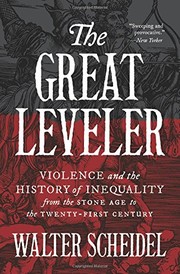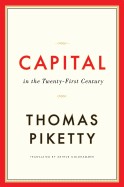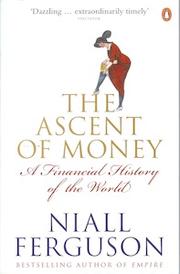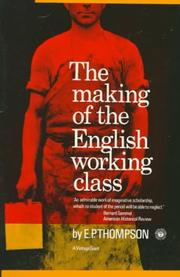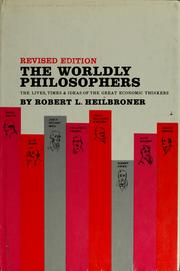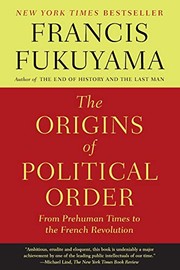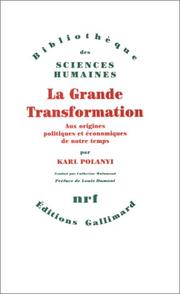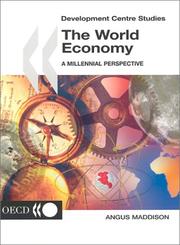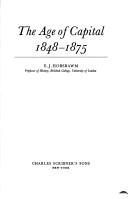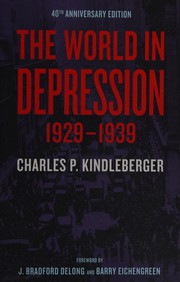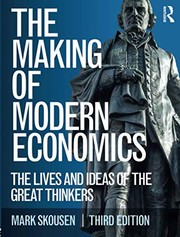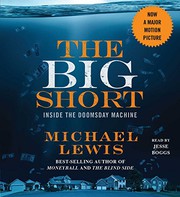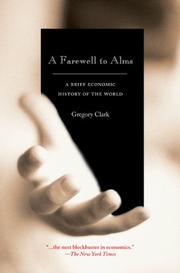Are you fascinated by the intricate relationship between economics and history? Delve into the past with our list of the 20 best books about economic history. From the rise and fall of empires to the impact of industrialization, these books offer a captivating exploration of how economic forces have shaped the world we live in today. Whether you’re a history buff or an economics enthusiast, these books on economic history will provide valuable insights into the forces that have shaped our global economy. Get ready to embark on a fascinating journey through the annals of economic history!
Contents
- 1 20 Best Economic History Books
- 2 The Great Leveler: Violence and the History of Inequality from the Stone Age to the Twenty-First Century
- 3 The Wealth of Nations
- 4 Capital in the Twenty-First Century
- 5 The Ascent of Money: A Financial History of the World
- 6 The Making of the English Working Class
- 7 The Worldly Philosophers: The Lives, Times, and Ideas of the Great Economic Thinkers
- 8 The Origins of Political Order: From Prehuman Times to the French Revolution
- 9 The Great Transformation: The Political and Economic Origins of Our Time
- 10 The World Economy: A Millennial Perspective
- 11 The Silk Roads: A New History of the World
- 12 The Rise and Fall of Nations: Forces of Change in the Post-Crisis World
- 13 The Euro: How a Common Currency Threatens the Future of Europe
- 14 The Great Escape: Health, Wealth, and the Origins of Inequality
- 15 The Power of Gold: The History of an Obsession
- 16 The Age of Capital: 1848-1875
- 17 The World in Depression, 1929-1939
- 18 The Making of Modern Economics: The Lives and Ideas of the Great Thinkers
- 19 The Big Short: Inside the Doomsday Machine
- 20 Guns, Germs, and Steel
- 21 A Farewell to Alms
- 22 Final Thoughts on Best Economic History Books
- 23
20 Best Economic History Books
The Great Leveler: Violence and the History of Inequality from the Stone Age to the Twenty-First Century
by Walter Scheidel
The Great Leveler: Violence and the History of Inequality from the Stone Age to the Twenty-First Century by Walter Scheidel is a thought-provoking book on economic history. Scheidel takes readers on a fascinating journey through time, exploring the relationship between violence and inequality. He argues that throughout history, only extreme events such as wars, revolutions, pandemics, and state collapse have significantly reduced economic inequality. In this book about economic history, Scheidel challenges conventional theories of economic development and offers a fresh perspective on the forces that have shaped societies and economies over millennia.
The Wealth of Nations
by Adam Smith
The Wealth of Nations by Adam Smith is a seminal book on economic history that was published in 1776. In this groundbreaking work, Smith explores the principles of economics and the factors that contribute to a nation’s wealth and prosperity. He delves into topics such as the division of labor, the role of self-interest in the economy, and the importance of free markets. Smith’s ideas laid the foundation for modern economics and had a profound impact on the development of capitalism and the global economy. His insights into the workings of the market and the importance of competition continue to be influential to this day.
Capital in the Twenty-First Century
by Thomas Piketty
Capital in the Twenty-First Century by Thomas Piketty is a groundbreaking book on economic history that delves into the dynamics of wealth and inequality. Piketty examines the distribution of wealth over the past three centuries, drawing on data from various countries to illustrate the evolution of inequality and the concentration of capital. He argues that without intervention, the wealth gap will continue to widen, leading to social and economic instability.
Through meticulous research and compelling analysis, Piketty challenges conventional economic theories and offers a fresh perspective on the forces driving inequality. His book about economic history has sparked widespread debate and has been praised for its thought-provoking insights into the distribution of wealth and the implications for society. Whether you’re an economist, historian, or simply interested in understanding the complexities of modern capitalism, Piketty’s economic history book is a must-read that will reshape your understanding of wealth and inequality in the twenty-first century.
The Ascent of Money: A Financial History of the World
by Niall Ferguson
The Ascent of Money: A Financial History of the World by Niall Ferguson is a captivating book about the evolution of money and its impact on the world. Ferguson takes readers on a journey through the economic history of civilizations, exploring the role of finance in shaping societies and driving global events. From the origins of money to the complex financial systems of today, the book offers a comprehensive and thought-provoking look at the forces that have shaped the world economy.
Readers will gain a deeper understanding of the interconnectedness of economic systems and how they have influenced everything from wars and revolutions to the rise and fall of empires. With compelling storytelling and insightful analysis, Ferguson makes the complex world of finance accessible and engaging. Whether you’re a history buff or a finance enthusiast, this book is a must-read for anyone interested in understanding the fascinating and often surprising intersections of money and power.
The Making of the English Working Class
by E.P. Thompson
The Making of the English Working Class by E.P. Thompson is a seminal book on economic history that offers a captivating and detailed portrayal of the working class in England during the late 18th and early 19th centuries. Thompson’s extensive research and engaging writing style bring to life the experiences and struggles of the working class, exploring their economic, social, and political developments.
Through a combination of historical analysis and personal narratives, the book provides a comprehensive understanding of the formation of the working class and the various forces that shaped their identity and consciousness. Thompson delves into the impact of industrialization, the emergence of new social movements, and the role of individuals in shaping the working class culture.
Overall, The Making of the English Working Class is a compelling and insightful book about economic history that continues to be a significant work in the field, offering a rich and nuanced perspective on the complexities of the working-class experience during a transformative period in England’s history.
The Worldly Philosophers: The Lives, Times, and Ideas of the Great Economic Thinkers
by Robert L. Heilbroner
The Worldly Philosophers: The Lives, Times, and Ideas of the Great Economic Thinkers by Robert L. Heilbroner is a captivating and insightful book on economic history. In this book, Heilbroner introduces readers to the lives and ideas of some of the most influential economists, from Adam Smith to Karl Marx to John Maynard Keynes. Through compelling storytelling and in-depth analysis, he brings to life the historical and intellectual context in which these great thinkers developed their ideas, offering a fascinating look at the evolution of economic thought.
With a keen focus on the human stories behind the theories, The Worldly Philosophers provides a rich and engaging exploration of the individuals who shaped our understanding of the economy and society. Heilbroner’s accessible and engaging writing style makes this book about economic history a must-read for anyone interested in the intersection of economics, philosophy, and history. Whether you’re a student, scholar, or simply curious about the ideas that have shaped the world, this economic history book offers a compelling journey through the lives and ideas of the great economic thinkers.
The Origins of Political Order: From Prehuman Times to the French Revolution
by Francis Fukuyama
The Origins of Political Order: From Prehuman Times to the French Revolution by Francis Fukuyama is a captivating book on economic history that delves into the development of political institutions and their impact on societies. Fukuyama takes readers on a fascinating journey from the earliest human societies to the dawn of the modern state, exploring the origins of political order and the factors that have shaped it throughout history.
Through meticulous research and compelling analysis, Fukuyama examines the evolution of political systems, the rise and fall of empires, and the interplay between culture, geography, and power. Drawing on a wealth of historical examples, he offers valuable insights into the complex dynamics of governance and the forces that have influenced the course of human civilization.
Whether you’re a history enthusiast or a student of political science, this economic history book is a must-read for anyone seeking a deeper understanding of the origins and development of political order. Fukuyama’s engaging narrative and thought-provoking exploration of economic history make this book an indispensable resource for anyone interested in the forces that have shaped the world as we know it.
The Great Transformation: The Political and Economic Origins of Our Time
by Karl Polanyi
The Great Transformation: The Political and Economic Origins of Our Time by Karl Polanyi is a groundbreaking book on economic history that examines the evolution of global economic systems from pre-industrial times to the 20th century. Polanyi explores the intricate relationship between politics and economics, arguing that the rise of free market capitalism has had profound social and environmental consequences.
Through a fascinating analysis of historical events, Polanyi demonstrates how the commodification of land, labor, and money has led to social dislocation and environmental degradation. He also presents the concept of the ‘double movement’, where society reacts to the destructive effects of unregulated markets by demanding government intervention and social protection.
This book about economic history challenges conventional economic theories and provides a compelling narrative of the complexities of economic development. It is a must-read for anyone interested in understanding the historical forces that have shaped our modern world.
The World Economy: A Millennial Perspective
by Angus Maddison
The World Economy: A Millennial Perspective by Angus Maddison is a renowned book on economic history that offers a comprehensive overview of the global economy over the past thousand years. Maddison’s extensive research and analysis provide readers with a deep understanding of the long-term patterns and developments that have shaped the world economy. The book explores the economic growth, technological advancements, and societal changes that have influenced different regions and countries over the centuries. With a focus on data and statistics, Maddison presents a compelling narrative of economic progress and challenges, offering valuable insights into the factors that have driven global economic transformation.
The Silk Roads: A New History of the World
by Peter Frankopan
The Silk Roads: A New History of the World by Peter Frankopan is a captivating book on economic history that explores the interconnectedness of civilizations through the trade routes that spanned from East to West. Frankopan challenges the traditional Eurocentric view of history by highlighting the pivotal role that Asia played in shaping global events. The book delves into the economic, cultural, and political exchanges that occurred along the Silk Roads, revealing how they shaped the world we live in today. Frankopan’s meticulous research and engaging narrative take readers on a journey through time, uncovering the forgotten stories of merchants, warriors, and philosophers who traversed these ancient routes. This book about economic history not only sheds light on the economic forces that have molded our world but also offers a fresh perspective on the complexities of human interactions across continents. It is a must-read for anyone interested in understanding the intricate web of connections that have shaped the course of history.
The Rise and Fall of Nations: Forces of Change in the Post-Crisis World
by Ruchir Sharma
The Rise and Fall of Nations: Forces of Change in the Post-Crisis World by Ruchir Sharma is a compelling book on economic history that delves into the factors that drive the rise and fall of nations in the modern global economy. Sharma, a global investor and contributing writer for the New York Times, draws on his extensive experience to provide a comprehensive analysis of the forces that shape the economic destinies of nations.
Sharma’s book about economic history offers a fascinating exploration of the various economic, political, and social factors that contribute to a nation’s success or failure. He examines the impact of demographics, geopolitics, and technological innovation, providing valuable insights into the complex interplay of these forces in the post-crisis world.
Through engaging storytelling and in-depth research, Sharma presents a thought-provoking perspective on the unpredictable nature of economic growth and decline. Whether you’re a student of economic history or simply curious about the forces that shape our world, The Rise and Fall of Nations is a must-read for anyone interested in understanding the dynamics of the global economy.
The Euro: How a Common Currency Threatens the Future of Europe
by Joseph E. Stiglitz
The Euro: How a Common Currency Threatens the Future of Europe by Joseph E. Stiglitz is a thought-provoking book on economic history that delves into the complexities and challenges of the Eurozone. Stiglitz, a Nobel Prize-winning economist, provides a comprehensive analysis of the Euro and its impact on the European Union, arguing that the common currency has created more problems than it has solved. He explores the economic, political, and social implications of the Euro, offering insightful perspectives on its role in exacerbating the financial crisis and widening the disparities among European countries.
Stiglitz’s compelling narrative is backed by rigorous research and compelling evidence, making this book about economic history a must-read for anyone interested in understanding the intricacies of the Euro and its implications for the future of Europe. With his characteristic clarity and expertise, Stiglitz offers a critical assessment of the Euro and proposes alternative solutions to address the challenges facing the European economy. Whether you’re an economist, a policymaker, or a concerned citizen, this economic history book offers valuable insights into the complexities of the Euro and its potential impact on the future of Europe.
The Great Escape: Health, Wealth, and the Origins of Inequality
by Angus Deaton
The Great Escape: Health, Wealth, and the Origins of Inequality by Angus Deaton is a compelling book on economic history that delves into the complex relationship between health, wealth, and inequality. Deaton, a Nobel Prize-winning economist, provides a fascinating analysis of how societies have evolved over time, and the forces that have shaped the economic history of the world.
Through a rich blend of historical insight and empirical data, Deaton explores the ways in which advancements in technology, medicine, and public policy have led to profound improvements in human well-being. However, he also raises thought-provoking questions about the persistent disparities in health and wealth that continue to plague many parts of the globe.
With its accessible writing style and thought-provoking content, The Great Escape is a must-read for anyone interested in understanding the intricacies of economic history and the factors that have driven global inequality. Deaton’s expertise and deep understanding of the subject make this book about economic history an enlightening and engaging read for scholars and general readers alike.
The Power of Gold: The History of an Obsession
by Peter L. Bernstein
The Power of Gold: The History of an Obsession by Peter L. Bernstein is a captivating book on economic history that delves into the fascinating and tumultuous relationship between humanity and the coveted metal. Bernstein takes readers on a captivating journey through time, exploring how gold has shaped the economic, political, and social landscapes of civilizations throughout history.
From ancient Egypt and Rome to the modern global economy, Bernstein meticulously traces the allure of gold and its impact on human behavior, societies, and nations. The author skillfully weaves together anecdotes, historical accounts, and economic analysis to provide a comprehensive understanding of the enduring obsession with gold.
As readers immerse themselves in the pages of this book about economic history, they will gain valuable insights into the role of gold as a store of value, a symbol of power, and a catalyst for both prosperity and turmoil. The Power of Gold offers a thought-provoking and insightful exploration of the complex and enduring relationship between humanity and this precious metal, making it a must-read for anyone interested in economic history books.
The Age of Capital: 1848-1875
by Eric Hobsbawm
The Age of Capital: 1848-1875 by Eric Hobsbawm is a captivating book on economic history that delves into the transformative period of the mid-19th century. Hobsbawm masterfully explores the rise of capitalism and the profound changes it brought to society, economy, and politics during this era.
Readers will be taken on a journey through the industrial revolution, the expansion of global trade, and the emergence of new economic and social structures. Hobsbawm’s meticulous research and insightful analysis provide a comprehensive understanding of the forces that shaped the economic history of this period.
With engaging prose and a wealth of historical detail, The Age of Capital offers a compelling narrative that brings to life the key events and developments of the time. Hobsbawm’s book about economic history is essential reading for anyone interested in understanding the roots of modern capitalism and its impact on the world.
The World in Depression, 1929-1939
by Charles P. Kindleberger
The World in Depression, 1929-1939 by Charles P. Kindleberger is a seminal book on economic history that delves into the causes and consequences of the Great Depression. Kindleberger, a renowned economist, provides a comprehensive analysis of the global economic downturn, exploring the interplay of international trade, finance, and politics during this tumultuous period.
Through meticulous research and insightful commentary, Kindleberger uncovers the intricate web of events that led to the collapse of economies worldwide, offering valuable lessons for understanding and preventing future economic crises. This book about economic history is a must-read for anyone interested in gaining a deeper understanding of the complexities of economic systems and the far-reaching impact of financial turmoil.
With its engaging narrative and rigorous scholarship, The World in Depression, 1929-1939 offers a compelling journey through a pivotal era in economic history, shedding light on the human, social, and political dimensions of a global crisis.
The Making of Modern Economics: The Lives and Ideas of the Great Thinkers
by Mark Skousen
The Making of Modern Economics: The Lives and Ideas of the Great Thinkers by Mark Skousen is a captivating book on economic history. Skousen takes readers on a fascinating journey through the evolution of economic thought, introducing them to the lives and ideas of the greatest economic thinkers of all time.
From Adam Smith and John Maynard Keynes to Milton Friedman and Joseph Schumpeter, Skousen provides a comprehensive and engaging overview of the economic history book. He skillfully weaves together biographical details and intellectual contributions, offering readers a deeper understanding of the historical context in which these influential ideas emerged.
Whether you’re a student of economics or simply curious about the development of economic thought, this book about economic history is sure to enlighten and inspire. Skousen’s clear prose and insightful analysis make this an essential read for anyone interested in the history of economic ideas.
The Big Short: Inside the Doomsday Machine
by Michael Lewis
The Big Short: Inside the Doomsday Machine by Michael Lewis is a captivating book on economic history that delves into the 2008 financial crisis. Lewis takes readers on a thrilling journey through the world of high finance, exposing the greed and corruption that led to the collapse of the housing market and the subsequent global economic meltdown. The book follows a group of outsiders who saw the impending disaster and bet against the housing market, making massive profits in the process. Through their stories, Lewis provides a fascinating look at the inner workings of Wall Street and the financial instruments that fueled the crisis.
With his signature wit and insight, Lewis demystifies the complex world of finance, making it accessible to readers of all backgrounds. The Big Short is a must-read for anyone interested in understanding the events that shaped our current economic history, and it serves as a cautionary tale about the dangers of unchecked greed and speculation in the financial sector.
Guns, Germs, and Steel
by Jared Diamond
Guns, Germs, and Steel by Jared Diamond is a fascinating book on economic history that explores the factors that led to the rise of certain civilizations over others. Diamond delves into the impact of geographic and environmental differences, as well as technological advancements, on the development of societies around the world.
Through a captivating narrative, Diamond examines how access to resources such as agriculture, domesticated animals, and metal played a crucial role in shaping the economic history of various regions. He also discusses the influence of germs and diseases on the course of history, shedding light on the devastating effects of epidemics on different populations.
This thought-provoking economic history book offers a comprehensive analysis of the forces that have shaped human societies and provides valuable insights into the disparities in power and wealth that exist between different regions of the world. It is a compelling read that challenges readers to rethink their understanding of the factors that have driven the course of human history.
A Farewell to Alms
by Gregory Clark
A Farewell to Alms by Gregory Clark is a fascinating book on economic history that challenges traditional theories of economic development. Clark argues that the key to understanding the modern world lies in the study of long-term economic trends, and he explores the factors that have shaped human prosperity over the centuries. Through a meticulous analysis of historical data, Clark presents a compelling case for the role of cultural and genetic factors in economic development, challenging conventional wisdom about the impact of institutions and policies.
This thought-provoking book about economic history offers a fresh perspective on the forces that have driven economic progress and inequality, shedding light on the enduring patterns that have shaped human societies. Clark’s engaging writing style and rigorous research make A Farewell to Alms a must-read for anyone interested in understanding the complexities of economic history and the factors that have shaped the modern world.
Final Thoughts on Best Economic History Books
Exploring the 20 best books about Economic History provides a rich and insightful journey through the evolution of economic systems, markets, and societies. These books offer a deep understanding of the forces and events that have shaped the economic landscape, making them essential reads for anyone interested in the intersection of history and economics. From classic texts to modern analyses, this curated list offers a diverse selection of perspectives and approaches to the study of economic history. Whether you’re a student, scholar, or simply curious about the topic, these books are sure to enlighten and inspire.
Which book about Economic History is best?
The best book on Economic History can vary with personal preference, but three widely recommended titles are:
- The Great Leveler: Violence and the History of Inequality from the Stone Age to the Twenty-First Century by Walter Scheidel,
- The Wealth of Nations by Adam Smith,
- Capital in the Twenty-First Century by Thomas Piketty.
Each offers valuable insights and could be a great starting point.
What are the best books to learn about Economic History?
For those looking to learn about Economic History, there is a wealth of literature that can provide a comprehensive understanding of the subject. Some of the most highly recommended books include:
- The Great Leveler: Violence and the History of Inequality from the Stone Age to the Twenty-First Century by Walter Scheidel,
- The Wealth of Nations by Adam Smith,
- Capital in the Twenty-First Century by Thomas Piketty,
- The Ascent of Money: A Financial History of the World by Niall Ferguson,
- The Making of the English Working Class by E.P. Thompson,
- The Worldly Philosophers: The Lives, Times, and Ideas of the Great Economic Thinkers by Robert L. Heilbroner,
- The Origins of Political Order: From Prehuman Times to the French Revolution by Francis Fukuyama,
- The Great Transformation: The Political and Economic Origins of Our Time by Karl Polanyi,
- The World Economy: A Millennial Perspective by Angus Maddison,
- The Silk Roads: A New History of the World by Peter Frankopan
These books offer a range of perspectives on Economic History, covering various aspects and approaches to the subject.
What are the best books about Economic History?
The best books about Economic History are:
- The Great Leveler: Violence and the History of Inequality from the Stone Age to the Twenty-First Century by Walter Scheidel,
- The Wealth of Nations by Adam Smith,
- The Rise and Fall of Nations: Forces of Change in the Post-Crisis World by Ruchir Sharma,
- The Euro: How a Common Currency Threatens the Future of Europe by Joseph E. Stiglitz,
- The Great Transformation: The Political and Economic Origins of Our Time by Karl Polanyi,
- The Worldly Philosophers: The Lives, Times, and Ideas of the Great Economic Thinkers by Robert L. Heilbroner.
Each offers unique insights into the subject. While these books about Economic History are highly regarded, it’s important to note that any list of ‘best’ books is subjective and reflects a range of opinions.
What are the best Economic History books of all time?
Choosing the best Economic History books of all time can vary depending on who you ask, but five titles that are often celebrated include
- The Great Leveler: Violence and the History of Inequality from the Stone Age to the Twenty-First Century by Walter Scheidel,
- The Wealth of Nations by Adam Smith,
- The Making of the English Working Class by E.P. Thompson,
- The Great Transformation: The Political and Economic Origins of Our Time by Karl Polanyi,
- and The Rise and Fall of Nations: Forces of Change in the Post-Crisis World by Ruchir Sharma.
Each of these books has made a significant impact in the field of Economic History and continues to be influential today.

